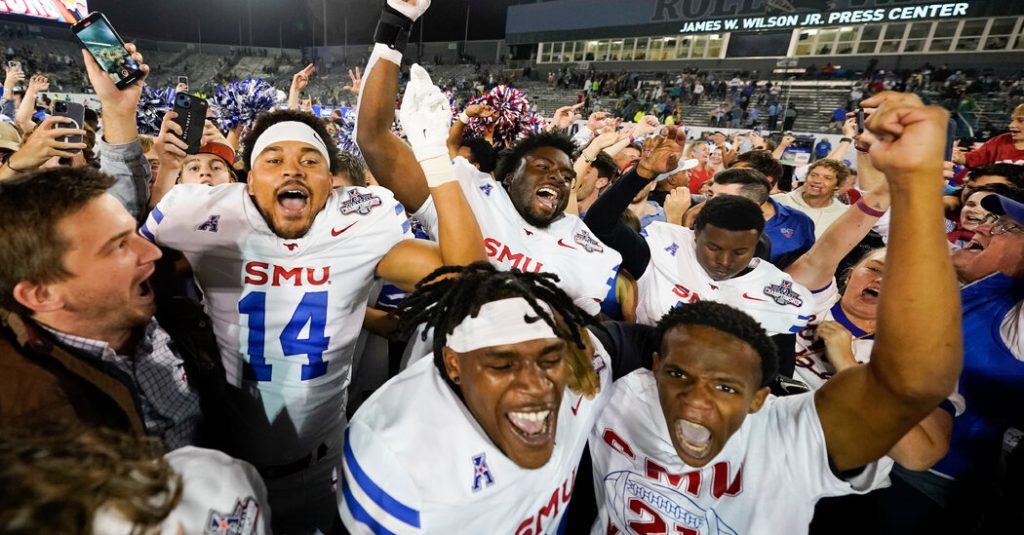The story begins with the tale of Eric Dickerson, a top high school running back prospect who was given a gold Pontiac Trans Am by Texas A&M in 1979 in hopes that he would become an Aggie. Instead, Dickerson chose Southern Methodist University (S.M.U.) and became part of the Pony Express era, a time when boosters in the Southwest Conference engaged in pay-for-play shenanigans. The N.C.A.A. tried to enforce rules against such practices and eventually caught S.M.U., leading to the program receiving the death penalty in 1987.
After nearly four decades of rebuilding, construction, and a change in N.C.A.A. rules allowing players to profit from their athletic skills, S.M.U. was invited to join the Atlantic Coast Conference (A.C.C.) in 2022. However, this invitation came at a cost as S.M.U. had to forgo nine years of conference broadcast revenues, totaling $270 million, to avoid diluting the pot for incumbent members. This move highlights the evolution of big-time college sports and the shifting views on the role of money and student-athletes.
The implementation of name, image, and likeness rules (NIL) in college sports has changed the landscape, allowing student-athletes to be paid by sponsors or donor groups, known as collectives. S.M.U. athletes, like volleyball player Alex Glover, have embraced this new era by becoming social media influencers and earning six-figure incomes. While this has brought freedom and opportunities for some, it has also introduced unfamiliar responsibilities and challenges for athletes, particularly in marquee sports like football and men’s basketball.
For S.M.U., the path to joining the A.C.C. and moving into the realm of major college athletics required significant financial investments and support from donors and trustees. President Gerald Turner played a key role in this transformation, emphasizing the importance of athletics in boosting the university’s national reputation. The university’s success in securing a spot in the A.C.C. represents a healing moment for the school, which had faced challenges following the football scandal and N.C.A.A. sanctions.
The current college sports economy, influenced by NIL, the transfer portal, and conference affiliations, has led to a play-for-pay environment where the best-funded institutions can land top athletes at high prices. S.M.U.’s Boulevard Collective oversees athlete payments, navigating the complex marketplace of college athletics. Athletic director Rick Hart acknowledges the challenges of operating a competitive program in this environment, where rules are still evolving and financial requirements are increasing.
Eric Dickerson, reflecting on his time at S.M.U. and the impact of the N.C.A.A. sanctions, highlights the struggles he and his former teammates faced after the program was shut down. Despite the physical toll the game took on his body, Dickerson believes that paying college athletes openly is the right thing to do. The story concludes with Dickerson and fellow S.M.U. alum Harvey Armstrong expressing their frustration over being treated as outlaws and the lasting effects the scandal had on their lives.


